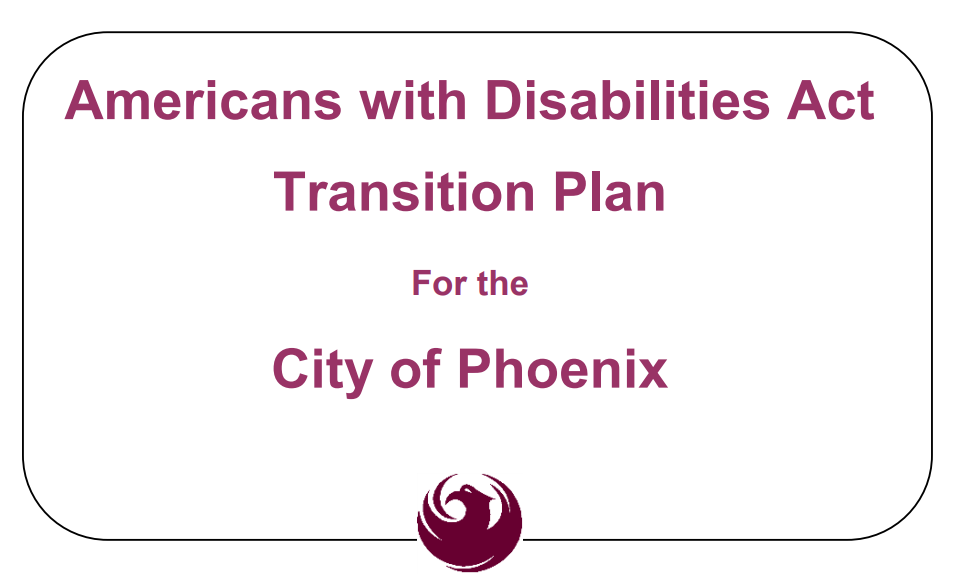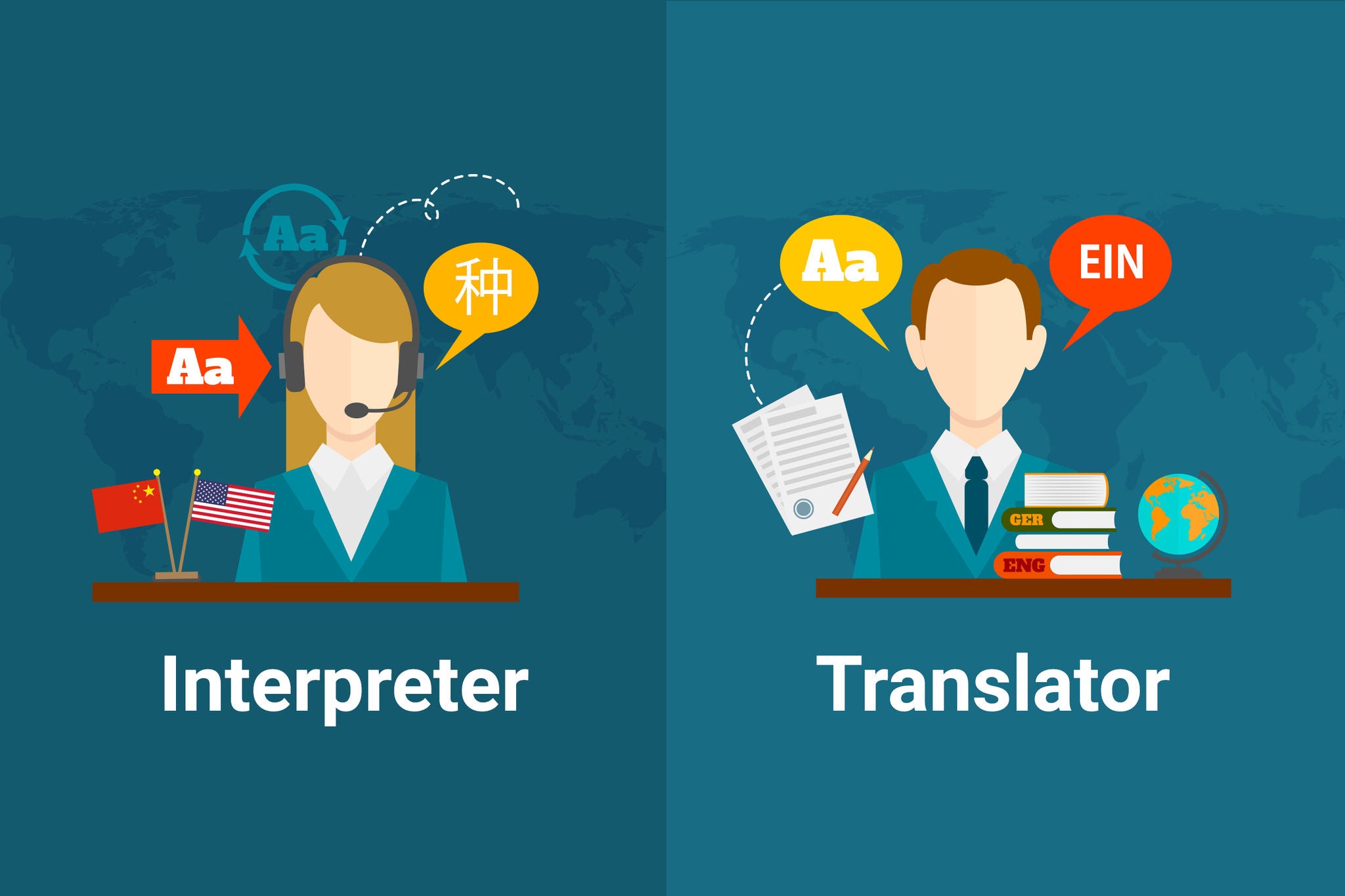The City of Phoenix website will undergo routine system maintenance on Saturday, January 31, 2026. While no major disruptions are expected, some services may be temporarily unavailable between 7:00 AM and 7:00 PM. If you experience any issues, please check back shortly. Thank you for your patience.
Americans with Disabilities Act (ADA) Compliance Program
About Our Program
The ADA Compliance Program (ADACP) ensures that all the City's programs, services, activities, and facilities are accessible to and usable by individuals with disabilities. This program coordinates and monitors the City's compliance with all applicable Federal, State, and Local laws, codes, and regulations. Staff works closely with all City departments to facilitate compliance through the provision of information, resources, guidance, and education.
ADA Complaint Procedures
About
As a covered entity under Title II of the Americans with Disabilities Act, the City of Phoenix does not discriminate on the basis of disability and, upon request, will provide reasonable accommodation to ensure equal access to its programs, services, and activities.
This grievance procedure is established to meet the requirements of the Americans with Disabilities Act of 1990. Oversight of compliance activities is the responsibility of the Equal Opportunity Department (“EOD”).
Complaint Process
When any person believes that the City of Phoenix has violated Title II Title III of the ADA by denying access to its programs, services, and activities based on a disability, a complaint may be filed with EOD.
Deadline: Any Complaint alleging a violation of the ADA should be submitted as soon as possible, but no later than one hundred eighty days (180) after the alleged violation or incident to the City of Phoenix ADA Coordinator through the online portal, at ada@phoenix.gov, or 200 West Washington, EOD, 15th Floor, Phoenix, AZ 85003. Alternative means of filing Complaints, such as personal interviews, will be made available upon request.
Complaint Information: The Complaint should be in writing and contain information about the alleged violation or incident discrimination, including the location, date, and description of the incident(s). The Complaint must also contain the contact information of the Complainant or their designee, including name, address, phone number, or other preferred communication method.
Initial Review: The ADA Coordinator or their designee will conduct an initial review of all Complaints. If the ADA Coordinator determines that the Complaint fails to meet any of the requirements listed above or fails to state a violation of the ADA, the Complaint will be closed with notification being provided to the Complainant or their designee in writing via the preferred communication method. Where verbal communication is the preferred method, a follow-up written communication will provided.
Investigation and Resolution: Within fifteen (15) calendar days after receipt of a Complaint that alleges an ADA violation, the ADA Coordinator or their designee will contact the Complainant or their designee to discuss the Complaint. Within fifteen (15) calendar days of the ADA Coordinator or their designee either having that initial contact or being provided with all requested information from the Complainant, the ADA Coordinator or their designee will send a written Response via the Complainant’s preferred communication method. Where verbal communication is the preferred method, a follow-up written communication will provided. The Response will explain the City’s position and may offer options for resolution of the Complaint.
Appeal Process
Deadline: If the ADA Coordinator’s Response does not satisfactorily resolve the issue, the Complainant or their designee may appeal the decision to the EOD Director (“Director”) within fifteen (15) calendar days after receipt of the Response.
Appeal Information: Any Appeal should be in writing with a detailed explanation of what is being appealed and why.
Appeal Resolution: Within thiry (30) calendar days after receipt of an Appeal, the Director or their designee will make a final determination based upon a review of the information presented in the complaint and appeal. There may be circumstances when the Director contacts the Complainant to discuss the Appeal. The Director or their designee will send an Appeal Resolution of the Complaint in writing via the Complainant’s preferred communication method. Where verbal communication is the preferred method, a follow-up written communication will provided.
Complaint Closure
Complaints may be closed at any point during the process if (1) the ADA Coordinator or Director determine that the Complaint does not confirm a violation of the ADA or (2) the Complainant becomes non-responsive to requests for additional information from the ADA Coordinator or the Director.
Types of Grievances
Employment
If a complaint is about an ADA Title I or Arizona Fair Employment and Housing Act employment violation, the ACP will consult with the City of Phoenix’s Equal Opportunity Department Compliance and Enforcement Division and will formally acknowledge receipt of the complaint. The City of Phoenix’s A.R. 2.35 (PDF) governs employment-related complaints of disability discrimination by City employees.
Digital and Website Accessibility
The City of Phoenix is committed to ensuring digital accessibility for people with disabilities. We are continually improving the user experience for everyone and applying the relevant accessibility standards. The City of Phoenix strives to meet level AA of conformance of the Web Content Accessibility Guidelines (WCAG 2.2). Please contact us with if you encounter website accessibility barriers.
City-owned or City-leased Buildings or Facilities
If the complaint is about a City-owned or City leased building or facility, the ACP will investigate and will formally acknowledge receipt of the complaint to the complainant within fifteen (15) calendar days.
Privately Owned Buildings or Facilities
If a complaint is about inaccessibility to a privately owned building or facility, the ACP will forward the complaint to the City of Phoenix Planning and Development Department (PDD) for investigation and will formally acknowledge receipt of the complaint to the complainant within seven (7) calendar days.
ADA Reasonable Accommodations
About
In accordance with the requirements of Title II of the Americans with Disabilities Act of 1990 (“ADA”), the City of Phoenix will not discriminate against qualified individuals with disabilities on the basis of disability in its services, programs, or activities.
The City of Phoenix will not place a surcharge on a particular individual with a disability or any group of individuals with disabilities to cover the cost of providing auxiliary aids/services or reasonable modifications of policy, such as retrieving items from locations that are open to the public but are not accessible to persons who use wheelchairs.
Types of Reasonable Accommodations
Employment
The City of Phoenix does not discriminate on the basis of disability in its hiring or employment practices and complies with all regulations published by the U.S. Equal Employment Opportunity Commission under Title I of the ADA.
Job applicants and City employees may request reasonable accommodations or address another disability related concern, by contacting the Human Resources Department at (602) 495-5700 or text to (800) 367-8939 or by submitting a HR Accommodation Request Form.
Effective Communication
The City of Phoenix will generally, upon request, provide appropriate aids and services leading to effective communication for qualified persons with disabilities so they can participate equally in the City’s programs, services, and activities, including qualified sign language interpreters, documents in Braille, and other ways of making information and communications accessible to people who have speech, hearing, vision impairments, or limited English proficiency.
Modifications to Policies and Procedures
The City of Phoenix will make all reasonable modifications to policies and programs to ensure that people with disabilities have an equal opportunity to enjoy all of its programs, services, and activities. For example, individuals with service animals are welcomed in the City’s offices, even where pets are generally prohibited.
Reasonable Accommodation Requests
To request auxiliary aid or service for effective communication, or a modification of policies or procedures to participate in a program, service, or activity of the City of Phoenix, please complete the Request for Accommodation form or contact the ADA Compliance Program Manager and ADA Coordinator.
Please note that the ADA does not require the City of Phoenix to take any action that would fundamentally alter the nature of its programs or services or impose an undue financial or administrative burden.
Businesses and Accessibility Compliance
ADA Compliance
Ensuring your business is accessible to people with disabilities not only helps your customers, but it’s also federal and state law. The Federal ADA paired with the State's ADA laws ensure equal access to those with disabilities at places of public accommodation.
The Federal ADA regulations require that all new construction for public accommodations comply with the 2010 Americans with Disabilities Act Standards. In addition, the ADA says that a public accommodation has a continuing obligation to remove architectural barriers (barrier removal) to make sure your business is accessible, even when your business is not otherwise contemplating construction. This includes existing barriers at entrances, aisles, bathrooms, and service counters that may have predated the ADA and your ownership of the business.
Building Code
The City of Phoenix building codes and ordinances lay out specific ways to make your business accessible, but only requires that business owners make improvements whenever they are doing construction or renovation, typically under a building permit. If you renovate your building, then all your new construction (the area of remodel) must meet the accessibility standards. In addition, you may be required to update some or all of the following: building’s main entrance, the primary route to the renovated area, and any bathrooms, drinking fountains, or signs serving the area of remodel accessible (path of travel and other features serving the area of remodel).
Building inspectors do not conduct a full review of your business location for disability access deficiencies; they only check to see if the renovations covered by your building permit meet the level of accessibility triggered under the building code for that specific project. Smaller projects are allowed an exception under the 20% rule and may not result in a fully accessible facility. However, even though the International Building Code requires that businesses make accessibility improvements only when they are doing other construction or renovation, your entire business location must still comply with the ADA barrier removal requirements.
The only exception for your business not being fully accessible is if the necessary improvements are not currently readily achievable. Readily achievable means easily accomplishable and able to be carried out without much difficulty or expense. To fall under this exception, you must be able to legally prove that any improvements you did not complete were not readily achievable. Even if you do not complete all improvements, you are still required to make an effort to provide goods and services to people with disabilities.
Resources & Documentation
-

CAC Autism Training Page
The CAC Program will help the City of Phoenix serve autistic guests or those with other sensory needs to improve their experience and meet their unique needs.
-

ADA Transition Plan 2007
Self-assessment report identifying physical and programmatic barriers. Outlining corrective actions to comply with accessibility standards.
-

Spanish Translation and Interpretation Services
The Communications Office offers translation and interpretation services to help City departments connect effectively with the Spanish-speaking community.